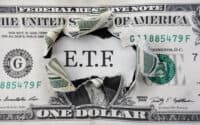 The gun control legislation that failed to make it through Congress earlier this week once again highlighted the ongoing debate in this country about the balance between individual freedoms and concerns over gun violence. Gun control is but one issue. Individual freedoms are many, from lifestyle choices to fiscal ones. And the question remains, how much should governments regulate and restrict these choices in the name of protecting and providing for the nation’s residents.
The gun control legislation that failed to make it through Congress earlier this week once again highlighted the ongoing debate in this country about the balance between individual freedoms and concerns over gun violence. Gun control is but one issue. Individual freedoms are many, from lifestyle choices to fiscal ones. And the question remains, how much should governments regulate and restrict these choices in the name of protecting and providing for the nation’s residents.
States may tax their population heavily, but also can be liberal about personal choices, like regulation on drugs, alcohol, tobacco and marriage equality. Based on the “Freedom in the 50 States” report, published by the George Mason University’s Mercatus Center, a libertarian-leaning think tank, 24/7 Wall St. reviewed the states with least freedom.
Click here to see the least free states
The report breaks freedom into three distinct categories: personal freedom, fiscal freedom and regulatory freedom. According to the Mercatus Center, a free state has a government that is more socially liberal, has hands-off policies, spends less and levies less taxes on its residents.
While some states do better than others based on the Mercatus report, the states with the best overall scores for freedom are not necessarily protecting liberty across the board. While the top 10 states tend to score well in regulatory and fiscal policy, only two are in the top 10 for personal freedom. South Dakota, which has the second-highest overall freedom score, is the fifth worst in the country for personal freedom, which includes victimless crimes like drugs and prostitution, as well as religious freedom.
While the states with the worst overall freedom tend to score poorly across the board, there are also states that do well in some areas. Maine is eighth worst for fiscal freedom because of its high tax burden and government employment. However, it is also third best in the country for personal freedom, in part because of its marriage equality, education and drug enforcement laws.
Mercatus scholar and assistant professor of political science at University of New York at Buffalo, Jason Sorens, explained that this has a great deal to do with the political divide in this country. Sorens noted that left-leaning states tend to perform better in areas like marriage freedom, marijuana, victimless crimes, gambling and alcohol. These states also are likely to be tax-and-spend economies, with high expenditure on education, Medicaid and pensions, and higher tax burdens to pay for these costs.
At the same time, conservative states, which perform poorly in those areas in personal freedom, do well in gun freedom, education and tobacco laws. They also tend to operate more fiscally conservative, spending less on benefits and taxing less. “There aren’t any states that do really well across the board, that really break out of the left-right mold,” Sorens said.
One factor that has helped some of these states’ scores, particularly in the past few years, has been their ability to make it through the recession, Sorens explained. “Those states that have seen the biggest increases in their freedom score — North Dakota, Oklahoma and Idaho — usually it is low taxation that is driving these improvements.” Those states fared much better than most of the country during the recession.
To determine the least-free states in America, 24/7 Wall St. reviewed “Freedom in the 50 States,” published by the Mercatus Center at George Mason University, a market-oriented university-based research center. The current publication provides information that is current for 2011. Current unemployment figures for February from the Bureau of Labor Statistics were also analyzed.
10. Mississippi
> Overall freedom score: -29.0
> Gun freedom rank: 24th best
> Tax burden: 23rd lowest
> Victimless crimes enforcement: the worst
Mississippi scored below the majority of states in all three major categories, including in the bottom 10 in both personal and regulatory freedom. Same-sex marriage as been outlawed in the state by a constitutional amendment. The state also has some of the strictest drug laws in the entire country — offenders can get a life sentence following a conviction of a major drug bust. However, the state’s right-to-work laws and health insurance policies received praise from Mercatus. Nevertheless, the state’s regulatory rank was brought down because of, what the center considered to be, one of the worst legal systems for preventing tort abuse in the entire country.
9. West Virginia
> Overall freedom score: -29.4
> Gun freedom rank: 13th best
> Tax burden: 25th lowest
> Victimless crimes enforcement: 20th best
West Virginia scored poorly due to an abundance of regulatory policies, for which the state ranks behind only California for worst in the nation. Its legal system was ranked as the worst in the nation. Outside of regulation, West Virginia also received criticism for high government employment and fiscal centralization. Although the Mercatus Center penalized the state for its high corporate income tax rate, the report also noted that such taxes are expected to decline going forward. According to the West Virginia State Tax Department, in early 2013 the state cut the corporate income tax rate from 7.75% to 7%, and the rate may fall to 6.5% in 2014.
Also Read: States with the Most Gun Violence
8. Vermont
> Overall freedom score: -34.0
> Gun freedom rank: 5th best
> Tax burden: 5th highest
> Victimless crimes enforcement: 13th best
Vermont scored lower than all but three states in terms of fiscal freedom. The state has the fifth-highest level of taxes at 11.1% of personal income. Mercatus also points out that the state is one of the most fiscally centralized of all states in the country. The state also scored in the bottom half in terms of regulation, brought down by its health insurance laws, which ranked among the worst in the country. However, helping the state’s overall ranking at least somewhat is the fact that it ranked in the top 25% of states in terms of personal freedom. The state is one of just a handful to permit same-sex marriage and the state’s gun laws are some of the most gun-owner friendly in the country.
7. Maryland
> Overall freedom score: -35.2
> Gun freedom rank: 7th worst
> Tax burden: 21st highest
> Victimless crimes enforcement: 23rd worst
Maryland ranked as the second-worst state for pursuing personal freedoms by the Mercatus Center. The strictness of the state’s gun laws were especially criticized as carry permits are expensive and difficult to obtain and many handguns and assault weapons are banned. Also criticized were Maryland’s marijuana laws, which penalize minor possession and do not include an effective medical exemption. Many other personal freedom rated poorly, excluding only alcohol freedom due to low taxes on alcohol. It also ranked in the bottom 10 for regulation due in part to the existence of rent control in the state.
6. Illinois
> Overall freedom score: -35.2
> Gun freedom rank: 6th worst
> Tax burden: 22nd highest
> Victimless crimes enforcement: 8th worst
Illinois ranked among the bottom 10 states in terms of regulatory freedoms, brought down by the fact that it ranked near the bottom in terms of tort regulations. Counties on the western portion of the state — notably Madison and St. Clair — are often referred to as judicial hellholes due to the high volume of civil cases brought in by plaintiffs and lawyers looking for lucrative jury awards. Illinois ranked lower than all states in terms of personal freedoms. The state has some of the most restrictive gun control laws in the country — it is currently the only state in the country that does not allow people to carry concealed firearms. But a federal court ruled the law unconstitutional in December and required the state legislature to enact legislation to allow it, although the bill has not yet been approved.
5. Rhode Island
> Overall freedom score: –40.4
> Gun freedom rank: 8th worst
> Tax burden: 10th highest
> Victimless crimes enforcement: 2nd best
Rhode Island is one of the worst rated states in the nation for fiscal policy, which accounts for just over 35% of a state’s overall freedom score. The state was especially criticized for its taxes and debt. The state also ranked near the bottom in regulatory freedom. It is one of just a few states that requires employers to provide short-term disability insurance. Also, health insurers are required to cover many different illnesses and injuries. Although the state performs better in terms of personal freedoms, it still ranks in the bottom half in that particular category. Mercatus points out that gun control is strict and the state has the second-highest cigarette taxes in the U.S.
Also Read: The 10 States Making the Most on Beer
4. Hawaii
> Overall freedom score: -67.3
> Gun freedom rank: 4th worst
> Tax burden: 2nd highest
> Victimless crimes enforcement: 8th best
Hawaii scored low in all three categories. Hawaii’s state and local tax burden is 11.3%, among the highest in the country. According to Guns & Ammo Magazine, just 6.7% of all residents own a gun, a lower percentage than any other state. The magazine points out that there are major restrictions on what kind of handguns residents are allowed to purchase, and all purchases require a permit. In addition, the state’s smoking ban that applies to all “restaurants, bars and workplaces without any exceptions.”
3. New Jersey
> Overall freedom score: -78.8
> Gun freedom rank: 5th worst
> Tax burden: 3rd highest
> Victimless crimes enforcement: 15th best
New Jersey’s average state and local tax burden of 11.2% is higher than all but two states, significantly dragging down the state in the freedom rankings. Also bringing down New Jersey are the state’s property rights laws, which Mercatus believes are the worst in the country. The group points out that zoning laws are incredibly strict. Also, private malls and homeowners’ associations must allow political speech on their property, among other problematic property rights regulations. New Jersey is also the worst in terms of travel freedom. The state has primary seat belt enforcement, a ban on driving with cell phones, and helmet laws for both motorcycles and bicycles.
2. California
> Overall freedom score: -85.8
> Gun freedom rank: the worst
> Tax burden: 6th highest
> Victimless crimes enforcement: 25th best
California’s state and local tax burdens of 10.8% of total income is one of the highest in the country. Since this study, taxes have been raised, disproportionately hitting high-income earners. Voters approved Proposition 30 last November, which raised income taxes for single filers earning at least $250,000 and married filers earning at least $500,000 annually. The measure also increased the state sales tax to 7.5% from 7.25%. California scored worse than any other state in terms of regulatory freedom. Concerns noted by the Mercatus Center include the state’s very strict zoning laws as well as labor laws such as the high minimum wage and universal worker’s compensation that place a significant burden on employers.
1. New York
> Overall freedom score: -150.2
> Gun freedom rank: 3rd worst
> Tax burden: the highest
> Victimless crimes enforcement: 10th best
New York scored the lowest of any states measured, ranking in the bottom four states in all three freedom categories. The state’s fiscal freedom was the worst in the country. Much of that is due to the state’s very high taxation burden of 14% of income, more than any other state by a sizeable margin. In terms of personal freedoms, the group noted that gun control laws in the state are very strict and have just gotten stricter. In January, Governor Andrew Cuomo signed a law that limited the number of bullets allowed in magazines and created a statewide gun registry, among other new regulations.
Also Read: America’s Most Content (and Miserable) Cities
Thank you for reading! Have some feedback for us?
Contact the 24/7 Wall St. editorial team.



